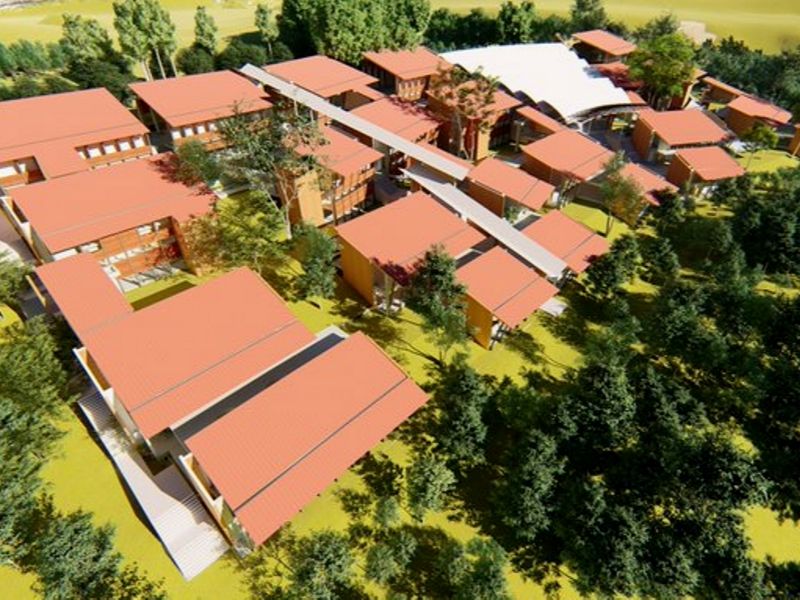On September 11, Mobius Foundation – a non-profit organisation working towards environmental sustainability – announced the launch of India’s first environment school in Coorg, Karnataka. World Environment School, Coorg (WESc) will be the first school in India and South Asia to take a leading role in promoting and delivering environmental education with sustainability at its core. Spread over a hundred acres across the beautiful hills of Coorg, the school’s focus is to build strong environmental and moral values among its students.
WESc will be operational from 2021 for Grade 6 to 12 students from India and around the world. The school will cater to the parents who want the next generation to be actively involved in protection and sustainability of the environment apart from world class education.
The school will be set up with assistance from Whitgift School, a leading British educational institute and a part of Whitgift Foundation, a charity based in Croydon, South London, England. Whitgift School will provide academic support to WESc which would involve establishing all aspects of the curriculum and syllabus development, assessment and best-teaching and learning practices.
Comments Pradip Burman, chairman, Mobius Foundation, “We at Mobius Foundation are very happy to announce the launch of WESc. This school along with the new age curriculum has been a long cherished dream for me and my team. Through this school, we are putting together sustainable education in a way that has never been done before, and we plan to scale up cutting-edge environmental education. Along with innovative programmes, the school’s dedicated team of teachers will deliver an enriched learning experience tailored to the individual needs of each student.” He adds, “Education for sustainable development is not only about being environmentally-friendly; it also involves developing life-skills including leadership, communication and management; all of which are extremely important for personal development.”
WESc will offer the international acclaimed Cambridge Assessment (UK) and International Baccalaureate (Geneva) curriculums. It will be blended with a cutting edge environmental curriculum designed by Centre for Environment Education (CEE). The IB Diploma Programme is an academically challenging and balanced programme of education with final examinations that prepare students for success at university and life beyond. It has been designed to address the intellectual, social, emotional and physical well-being of students. The programme has gained recognition and respect from the world’s leading universities.
“The need for environmental education is growing rapidly as the degradation of the environment is taking place at a fast pace. Considering the escalating need, we have partnered with Mobius Foundation, which has taken a lead role in this direction by launching India’s first environment school. Every individual must take steps in reviving the natural resources and have an empathetic outlook towards the environment, a school dedicated to this purpose would certainly spread awareness,” says Chris Ramsay, head master, Whitgift.
WESc aims to create a positive and progressive school culture. Teachers will have more opportunities to devise unique learning opportunities and students would benefit through increased participation and productivity and improved problem-solving and critical thinking skills.
WESc, further intends to create a nurturing environment, in which young people can unleash and realise their potential, find their individuality, develop their intellect, appreciate diverse cultures, respect the environment, enhance their interpersonal skills, learn to work independently and collaboratively, pursue excellence, enhance their creativity and grow into mature citizens, committed to making a positive contribution to society and the nation.
Promoted by Pradip Burman, Mobius Foundation, is a non-profit organisation, committed to create sustainable, culturally relevant solutions, enabling communities to break longstanding practices that are detrimental for human existence.
